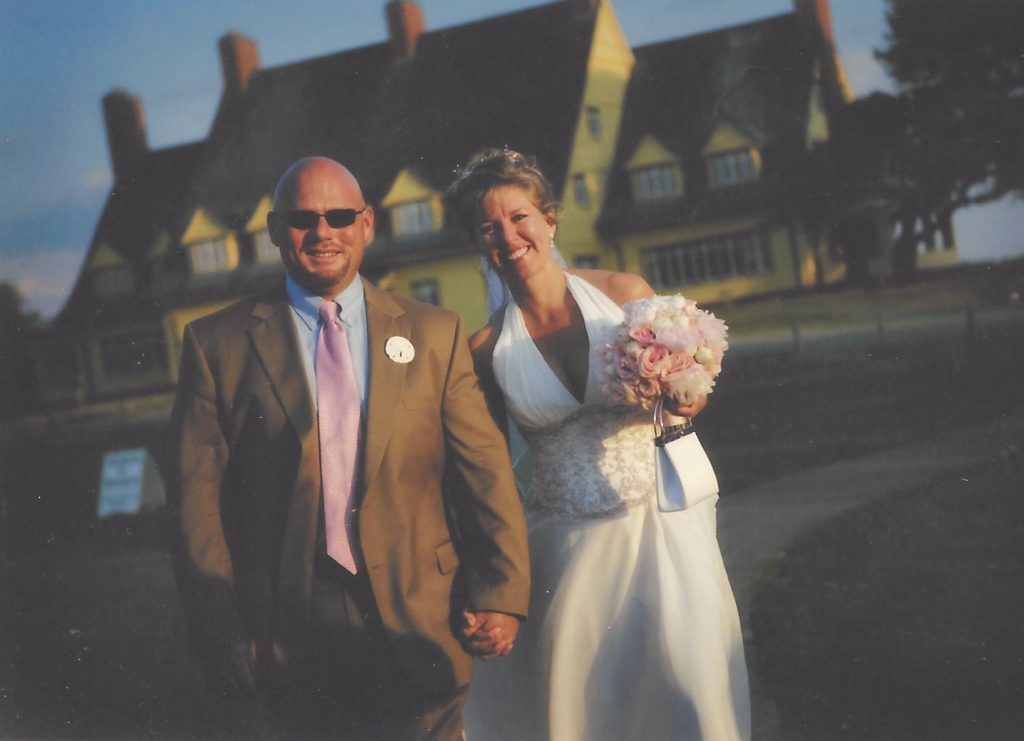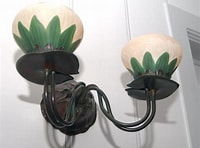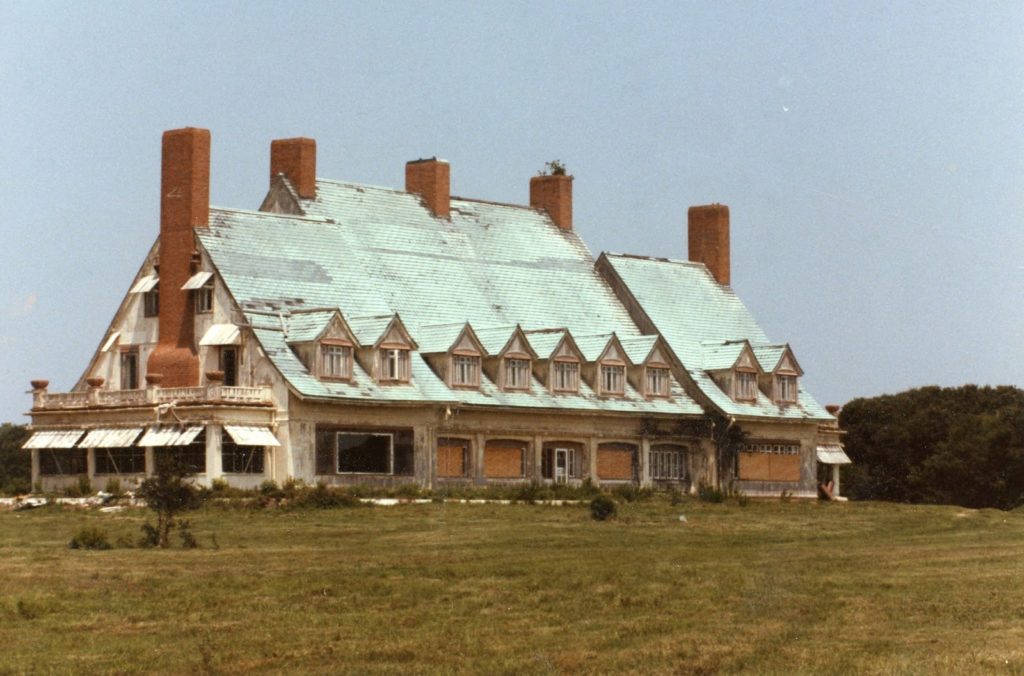Starting with the Past
The instinct to create the future by honoring the past dwells inside each of us. I recently toured The Whalehead Club (for the umpteenth time) and learned of a woman, a sage, who recognized the value of the house’s dozen or so Tiffany designed and lily-shaped, sconce globes and tucked them into the attic for safekeeping in the mid-1980s. At the time, the house had come into significant disrepair, and she foresaw their value as well as their imminent peril by being left out in the open with little protection. She’d had the foresight that the property might one day be renovated and would need these valuable and original details to be preserved. She helped create the future by preserving the past.

When my family first discovered The Whalehead Club in 1980, it was merely a run-down, abandoned hunting lodge built in the 1920s for a wealthy, northern industrialist, and it was within walking distance of our new family cottage in the Outer Banks of North Carolina. It was a fascinating piece of history tucked into the backside of the town of Corolla. We explored the unlocked and dilapidated house without much restraint back then. Trespassing, maybe. Adventurous, absolutely. But we did no harm other than extract wild and terrific stories about its previous occupants and its then-current use as a rocket testing lab. These stories, crafted by my grandfather, who had a knack for spinning outrageous yarns, featured heroes and villains and often involved espionage and other extravagant secrets. He once crafted a whole story about the Zigfeld Follies visiting the house to entertain guests. Not true, but an engaging tale, nonetheless.

Years later, after an extensive restoration effort, I learned of the true stories of the previous owners of this manor set among live oaks and duck blinds. I discovered how Edward Knight built this remote but beautiful waterfowl club for his second wife, Marie-Louise LaBel Knight, who was then barred by most neighboring hunt clubs due to her gender. This story of inequality and the act of thumbing their noses at society’s structure appeal to my independent streak. The home’s artistry and attention to detail in the Art Nouveau styling appeal to my artistic nature. The strip of land along the water that once served as an airstrip appeals to my adventurous spirit. The porch on the backside with its row of rocking chairs appeals to my laidback nature. This house may as well have been built for me.
Still, what mattered the most were the experiences we created as a family walking to the house, crabbing along its craggy shores, crossing the bridge to watch the sunset over the Currituck Sound, climbing the spiral staircase of the Corolla Lighthouse that guarded it all just to the north. The number of happy hours assembled there involving our family’s ever-growing number of children, who would become parents and then grandparents themselves, forged our own history through our own stories. We repeat these remembrances when looking at old photographs or toasting a relative who was gone too soon. This place wove itself into our family’s history without us owning a spec of its dirt or a splinter of its siding.

So, it only seemed fitting for my fiancée and me to hold our wedding reception on the lawn of this coastal hunt club some twenty-seven years later. That this place held so much history meant it became the obvious place to begin our future.
There is much literary advice about the importance of setting and history. Whenever I read a novel, I can sense when the setting of a story is important. It has a weight, it serves as a backdrop, sometimes casting a heavy shadow, other times just barely perceptible, painted with ever-so-delicate strokes. When establishing a setting, experts encourage writers to look at everything: timeframe, economic dynamics, social fabric, physical architecture, natural and political forces, the look of it when approaching by car, the smell of it when approaching by boat, the feel of mosquitoes in the peak of summer, or the bite of the cold when under a blanket of snow. But I start first with history.
To me, history gives depth to a setting, lends richness to the story’s occupants, and sets the stage for action and interaction. Family memories build a kind of root system to a place that creates fertile ground for characters to come together to love, to fight, to deceive, to reunite, to play, to explore, to meet, to marry, to drink, to recover, to resolve to live better, to live and to die. And to believe every word of the story that takes place in that fictional place.
Creating something new sometimes requires attention to the past. It all starts with the past. And the future can be what you make it.



Oh man !! I feel guilty for not liking history now ?. I love the line ….”This place wove itself into our family’s history….,” ?. Awesome blog !
Beautiful sentiment! And I love the pictures.